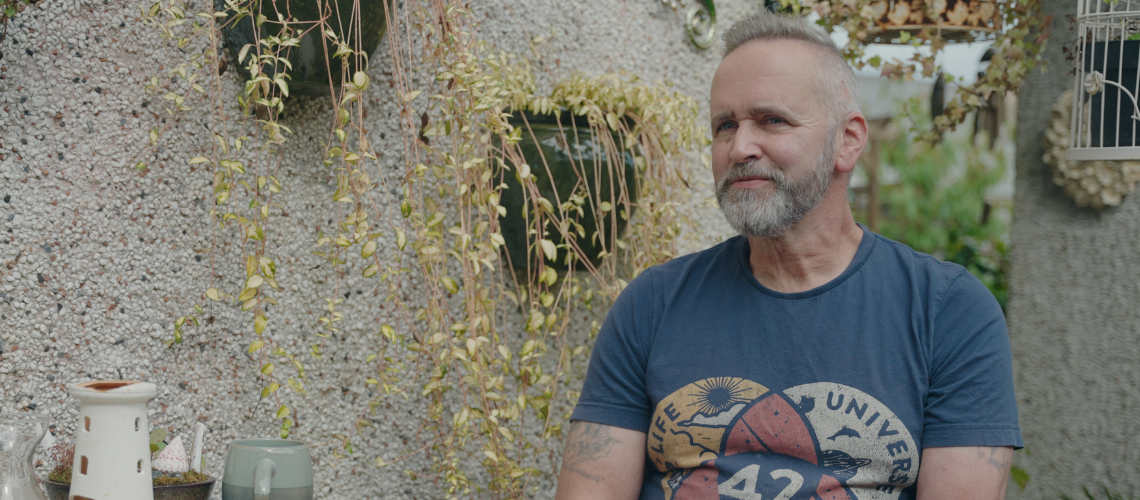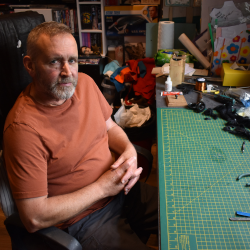
This story is adapted from a video originally filmed in 2025.
For 6 and a half years, Vaughan Herriott, aged 59, from Cornwall, battled non-Hodgkin lymphoma, enduring "all the chemos you can imagine" in a fight for his life.
His cancer journey began in 2017, a week after the tragic suicide of his father. A lump in his neck, initially dismissed, led to a phone call with a GP that ended with the dreaded words "you've probably got cancer".
The news hit Vaughan hard. His mental health began to suffer. His diagnosis for cancer was later confirmed.
“It was the worst possible news I could’ve got. And at a dark and difficult point in my life. I was still grieving for my father. Everything was coming on top of me, all at once.”
- Vaughan
Vaughan, a puppet maker and Thunderbirds fan, began a series of treatments including chemotherapy and Rituximab. Doctors later increased the dose for his chemotherapy treatment. He later underwent grueling beam therapy involving stem cell harvesting and bone marrow-killing chemotherapy. 
The dad-of-two spent 3 months in isolation, but the cancer returned. He went through 5 different forms of chemotherapy over 6 years.
The turning point came after intense back pain revealed the cancer had returned with terrifying aggression, encasing his kidney and liver, invading and fracturing his spine. He was told he "haven't got any other options" and was given 6 months to live.
But with no other options left, Vaughan was offered a place on a clinical trial which involved giving patients experimental immunotherapy, delivered by infusion. Researchers give doses which are increased over time to help the patient tolerate the treatment.
Initially daunted by the thick information pack, the prospect of dying led him to think "what the hell." He sat his wife down and explained "this is my last option".
The trial was a lifeline. Within 8 months, his cancer was gone.
“I took to the trial with no side effects and within 8 months I was cured!"
- Vaughan
He has now been in remission for 3 years. But the chemotherapy has had a lasting impact on him.
He is one of several patients on the trial who are now in remission, and he hopes his experience will encourage others to consider taking part in research when facing their own battles with cancer.
He said: “Chemo was horrible. I get very tired easily and I’ll never be back to how I was. But I’m trying to get as close to that as I can get.
“I would have been dead 3 years ago if I hadn't participated in a trial. Taking part in a trial could save your life and the research findings could also help others in the future. I’m also deeply grateful to the fantastic team of nurses and doctors who supported me.”
Vaughan hopes this immunotherapy treatment will become a "frontline treatment rather than a last chance saloon".
Watch Vaughan's story
How you can get involved with research
Sign up to Be Part of Research to be contacted about a range of health and care research. Or check out our full list of studies to see if one is right for you.
And if taking part in a study doesn’t feel right at the moment there are other ways to get involved in research.




